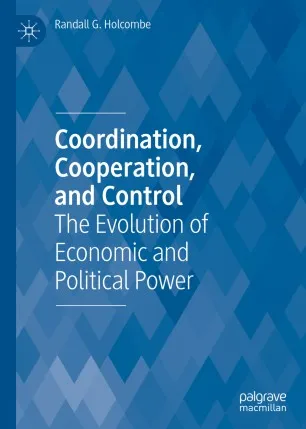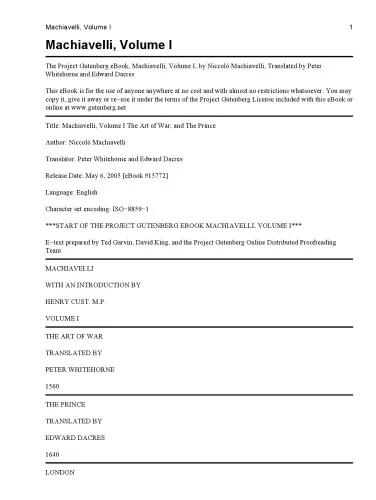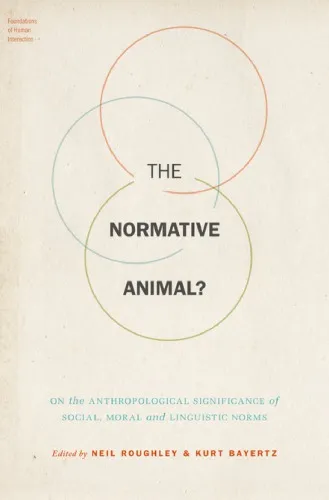Coordination, Cooperation, and Control: The Evolution of Economic and Political Power
4.5
Reviews from our users

You Can Ask your questions from this book's AI after Login
Each download or ask from book AI costs 2 points. To earn more free points, please visit the Points Guide Page and complete some valuable actions.Related Refrences:
Introduction to "Coordination, Cooperation, and Control: The Evolution of Economic and Political Power"
In "Coordination, Cooperation, and Control: The Evolution of Economic and Political Power," author Randall G. Holcombe explores the intricate dynamics of power, governance, and the interconnected processes that drive societal and institutional development. This book carefully examines the progression of economic systems and political organizations, illustrating how these forces interact to create cohesive structures and mechanisms that sustain human society. It provides an in-depth understanding of the underlying principles of coordination, the necessity of cooperation, and the exertion of control, illuminating their roles in shaping both economic and political landscapes.
Randall G. Holcombe offers readers a compelling analysis of the historical journey of economic and political systems, beginning with fundamental human interactions and culminating in the sophisticated institutional frameworks we see today. Far from being linear, this evolution reflects a series of adaptive strategies aimed at solving coordination problems, fostering cooperation, and managing resources and information. The book's interdisciplinary approach highlights the interplay between individual choice, collective decision-making processes, and structural power.
This introduction aims to set the stage for a deeper exploration of the book’s core themes while offering an accessible and engaging guide for readers interested in economics, politics, and the evolution of social power.
Summary of the Book
The central premise of the book revolves around the interaction of three key components: coordination, cooperation, and control. Randall G. Holcombe meticulously dissects these elements, demonstrating how they serve as the foundation for both economic systems and political authority.
The book begins with an exploration of how human societies historically solved coordination problems, starting with small, tribal groups. These groups often relied on informal coordination mechanisms based on trust and kinship. As societies grew more complex, new challenges emerged that required more formalized systems of cooperation. The creation of markets and governments became essential structures to manage resources and mediate conflicts.
Holcombe delves into the evolution of these institutions by examining the dual role of economic power and political power. While markets tend to rely on voluntary exchange and mutual benefit, political systems often employ coercive powers to enforce decisions. The book discusses the balance between these two forces and their complementary roles in maintaining order and promoting societal progress.
Key case studies and historical examples are presented throughout the book, linking theoretical arguments with real-world applications. These examples serve to illustrate how societies innovate and adapt over time, overcoming challenges through iterative processes of learning and adjustment.
Key Takeaways
- Coordination, cooperation, and control are interdependent forces that underpin societal organization.
- Economic power and political power are distinct but closely linked, shaping the trajectory of human progress.
- Institutions are adaptive structures that evolve in response to environmental and societal challenges.
- The balance between voluntary exchange and coercive authority is critical to fostering long-term stability and growth.
- Understanding the historical evolution of these systems can offer insights into current economic and political dynamics.
Famous Quotes from the Book
“Coordination is the glue that binds individuals together in a web of mutual dependence, enabling them to achieve together what they could never accomplish alone.”
“Cooperation emerges not from the absence of conflict, but from the ability to resolve it constructively, creating systems that prioritize shared goals.”
“Control is a double-edged sword: it is necessary to maintain order but can stifle innovation and progress if wielded too heavily.”
“The evolution of institutions reveals the ingenuity of human societies in adapting to complex challenges and seizing opportunities for growth.”
Why This Book Matters
"Coordination, Cooperation, and Control" is more than just an academic exploration of societal structures. It is an essential read for anyone looking to understand the mechanisms that govern the world around them. The insights provided by Randall G. Holcombe are profoundly relevant in today’s rapidly changing global environment, where understanding the balance between economic and political power is more critical than ever.
The book equips readers with analytical tools to examine modern institutions and their broader implications. It also inspires a deeper appreciation for the historical forces that have shaped contemporary society. By understanding how coordination, cooperation, and control interact in economic and political arenas, readers gain a clearer perspective on key issues such as governance, resource allocation, and conflict resolution.
Whether you are a student, a policymaker, or simply a curious reader, this book provides a comprehensive framework to make sense of the evolving dynamics of power and progress. Its relevance transcends academic boundaries, offering practical insights for addressing the challenges of today and tomorrow.
Free Direct Download
You Can Download this book after Login
Accessing books through legal platforms and public libraries not only supports the rights of authors and publishers but also contributes to the sustainability of reading culture. Before downloading, please take a moment to consider these options.
Find this book on other platforms:
WorldCat helps you find books in libraries worldwide.
See ratings, reviews, and discussions on Goodreads.
Find and buy rare or used books on AbeBooks.
1357
بازدید4.5
امتیاز0
نظر98%
رضایتReviews:
4.5
Based on 0 users review
Questions & Answers
Ask questions about this book or help others by answering
No questions yet. Be the first to ask!













